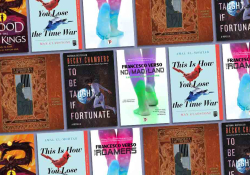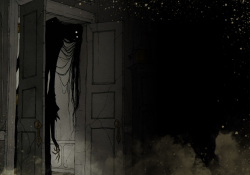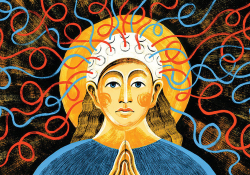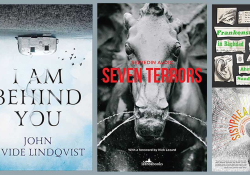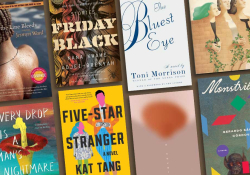Norwegian Speculative Fiction in Translation
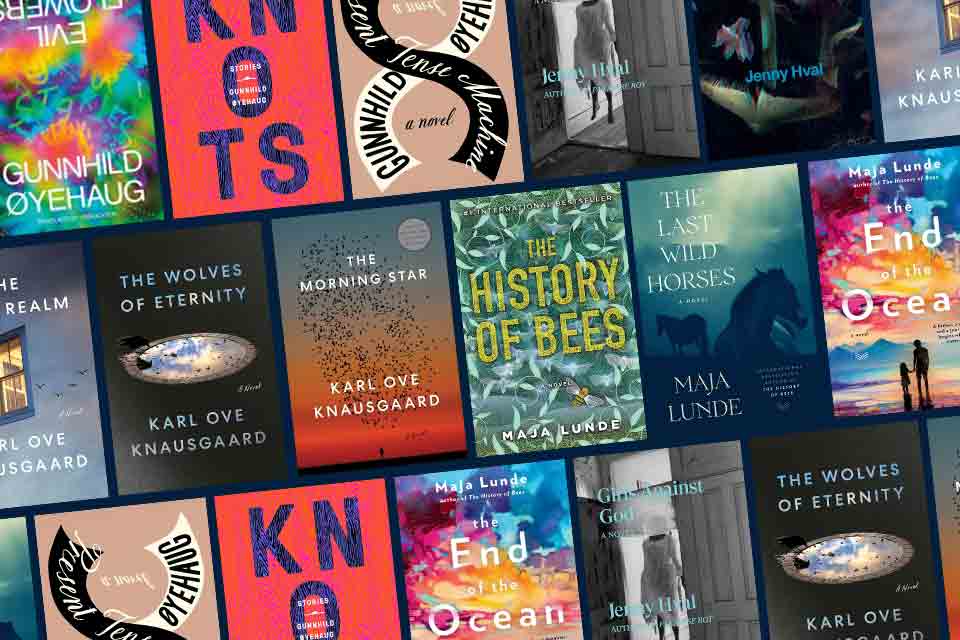 Norwegian speculative fiction is making its way into English in ever greater numbers as we move deeper into the twenty-first century. What makes this particularly exciting is that the four authors fueling this trend write very different kinds of speculative fiction: anglophone readers can choose from Karl Ove Knausgård’s supernatural stories, Gunnhild Øyehaug’s metafictional black humor, Maja Lunde’s dystopian cli-fi, and Jenny Hval’s surrealist horror. In short, there’s something for anyone looking to expand their reading palate.
Norwegian speculative fiction is making its way into English in ever greater numbers as we move deeper into the twenty-first century. What makes this particularly exciting is that the four authors fueling this trend write very different kinds of speculative fiction: anglophone readers can choose from Karl Ove Knausgård’s supernatural stories, Gunnhild Øyehaug’s metafictional black humor, Maja Lunde’s dystopian cli-fi, and Jenny Hval’s surrealist horror. In short, there’s something for anyone looking to expand their reading palate.
Gunnhild Øyehaug
Two collections and one novel by Gunnhild Øyehaug (b. 1975) have been available in English since 2017: Knots, Evil Flowers, and Present Tense Machine. Often in her fiction, words themselves are the building blocks of creation, with Øyehaug inviting readers to think about how reading and writing make us the humans we are. Knots includes stories about aliens who communicate via Polaroid photos that emerge from their foreheads and a baby whose umbilical cord can’t be cut. Øyehaug’s fascination with French symbolism is also apparent in a story about Arthur Rimbaud, though she delves deeper into symbolism with her humorous, one-sided tête-à-tête with Charles Baudelaire in Evil Flowers. Also included in this collection are pieces about a dead woman visiting the white cliffs of Dover and a woman who loses a piece of her brain after she menstruates. Present Tense Machine imagines that a misread word leads to a fractured world where a mother and daughter are separated in parallel universes.
Maja Lunde
Maja Lunde (b. 1975), like Knausgård, has written a tetralogy—The Climate Quartet—of which only the first three books are available in English. Her focus, however, is on how humanity might deal with various kinds of climate disasters. The History of Bees covers multiple centuries and follows various protagonists as they struggle to hand-pollinate fruit trees once the bees have disappeared. It is water’s turn to disappear in The End of the Ocean, a novel that also jumps through time and connects the actions of an environmental activist in contemporary Norway with a father and daughter trying to survive a draught in near-future France. The third book in the tetralogy, The Last Wild Horses, focuses on three different generations trying to bring the Przewalski horse back from near extinction.
Jenny Hval
Genre boundaries blur into a rich blend in Jenny Hval’s (b. 1980) novels. Her first in English, Paradise Rot, is a surreal mix of the supernatural and psychological horror, where a woman moves to a new country to attend a university but finds that the house she is living in seems to come alive with each new day. Girls against God, classified as a “genre-warping, time-traveling horror novel–slash–feminist manifesto” by the publisher, revolves around artists, witches, and a time-traveling Edvard Munch.
Karl Ove Knausgård
Known more in the anglophone world for his autofictional series My Struggle, Karl Ove Knausgård (b. 1968) has also written a tetralogy called The Morning Star, of which the first three are now available in English. Focusing on humanity’s understanding of its place in the cosmos, these novels detail events that follow the sudden appearance of a new star in the sky, which seems to signal supernatural events around the world. In the eponymous novel, several people witness the birth of this new star, and though life goes on as before, the ensuing strange events suggest that something indefinable has changed. The story continues in The Wolves of Eternity, in which the children of a dead man find one another via various means, including dreams. The Third Realm features shapeshifters, murderers, and a “dream bank” that all point back to the strange star.
Editorial note: You can read “Dreamwriter (Autobiography),” a story by Gunnhild Øyehaug translated by Kerri Pierce, in WLT’s November 2016 issue.

